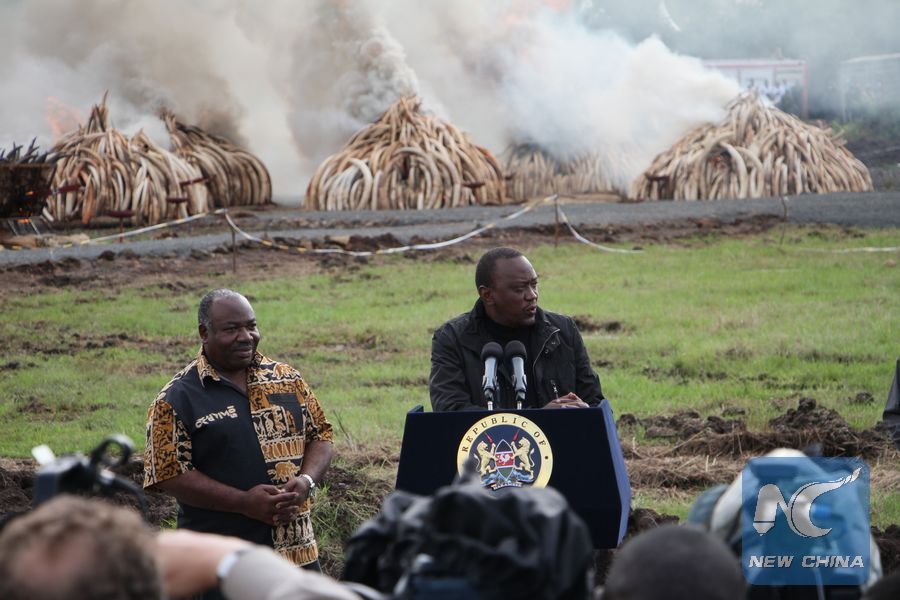
Photo shows the historic torching of ivory and rhino horns at Nairobi National Park in Nairobi, Kenya, April 30, 2016. (Xinhua/Allan Mutiso)
NAIROBI, Jan. 8 (Xinhua) -- Kenya Wildlife Service (KWS) on Monday welcomed the plan by the British government to shut ivory markets, saying the move will help end illegal trade of ivory.
KWS said in a statement that the existence of legal ivory markets and exports within Britain and Europe provide opportunities for laundering illegal ivory.
"KWS and Kenya welcome the plan by UK to close its ivory markets as this will obliterate any chances for opportunists, who may have in the past used the existing market in antique ivory as a cover for trade in illegal ivory," KWS said.
The statement comes after Michael Gove, Britain's Environment Secretary, announced that London will impose a ban on ivory sales to help end the poaching of elephants.
"The decline in the elephant population fuelled by poaching for ivory shames our generation. The need for radical and robust action to protect one of the world's most iconic and treasured species is beyond dispute," Gove said last week.
The move came after China honored its commitment to ending commercial processing and sales of ivory by the end of 2017.
The closure of ivory market in China is expected to drastically reduce slaughter of African elephants whose population declined by about 110,000 over the past decade based on statistics from the International Union for Conservation of Nature (IUCN).
It is understood that the legal trade of ivory, raw or worked, in Britain and other European countries' auction houses and shops have fueled demand for ivory and contribute to poaching.
KWS said the plan to ban ivory sales in Britain and towards implementing the Convention on International Trade in Endangered Species of Wild Fauna and Flora (CITES) recommendation to close domestic ivory markets is a welcome shot in the arm for Kenya and other elephant range states' conservation efforts, as the demand for ivory is bound to plummet.
Over the last two decades, poaching and illegal wildlife trade in and around protected areas in Africa have been on the rise.
According to conservationists, as profits rise, illegal wildlife trade has become a transnational organized enterprise, estimated by the CITES to be worth up to 20 billion U.S. dollars a year, making it the fourth biggest illicit activity after trade in guns and drugs, and human trafficking.

